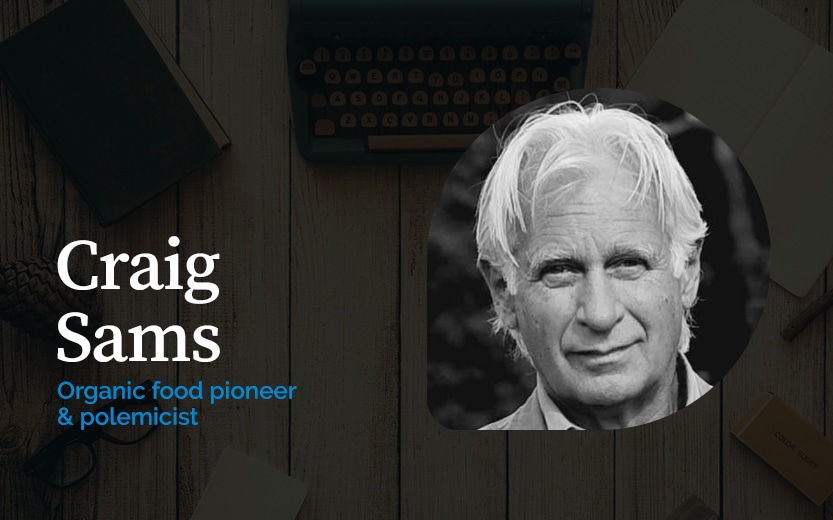The natural food trade should take a lead in exposing the hypocritical regulation of herbal medicine, says Craig Sams
A bust in Denver: “Okay, kid, put your hands up against the wall. Spread your legs while we pat you down.” Two cops search a young man’s clothing.
“Nothing here but a couple of marijuana joints … Wait a minute, what’s this? It looks like comfrey tea bags. Get the handcuffs – let’s take this one down to the station.”
A bust in London: “Okay, kid, put your hands up against the wall. Spread your legs while we pat you down.” Two cops search a young man’s clothing.
“Nothing here but a couple of comfrey tea bags … Wait a minute, what’s this? It looks like a couple of marijuana joints. Get the handcuffs – let’s take this one down to the station.”
Depending on where you are in the Western world of free and democratic nations, your choice of therapeutic herbs can either put you in the slammer or be purchased legally.
Charlotte Mitchell, who almost singlehandedly rescued the Soil Association from bankruptcy and oblivion back in 1991, has suffered the ever-increasing impact of multiple sclerosis. The NHS refused to authorize the use of Sativex (a marijuana extract made by a drug company in Kent) for her, so she has to fork out £100 a week for this medicine in order to be legal. She could buy dope from a street dealer in Edinburgh for a fraction of the cost, with all the risks of dealing with criminals, but she sticks to the legitimate stuff. The NHS, too busy enriching the peddlers of statins, antidepressants, hydrogenated fat margarines and other crappy drugs, won’t allow Sativex for patients in England or Scotland. All her working life Charlotte paid her NI contributions, but when her time of need came, she got two fingers and now has to pay out of her savings for the only medication that effectively eases the pain of MS.
Meanwhile, it’s all kicking off in the US. Not only do 20 states allow medical use of marijuana for all sorts of conditions, but two of them, Colorado and Washington, have decided to allow it for recreational use, too. However, comfrey is still prohibited in the US and all sorts of herbs are now prohibited or strictly regulated in the UK. How on earth are we going to deal with the hypocrisy of a situation where people can go to jail for peddling herbs like comfrey and slippery elm while we empty out our prisons of people who were sent down for dealing in herbs like marijuana?
This is not the only paradox in our society that needs resolving now that progress is beginning to happen. What about speed?
The pot paradox
‘Speed kills’ – this slogan arose in the sixties as people realized that amphetamines were a terrible drug with progressively degenerate consequences. Yet our rulers encourage its use. Today we force school kids to take speed if they have attention deficit hyperactivity disorder (ADHD). It slows them down. But it also makes them fat for the rest of their lives, with all the health problems that come with obesity. The US Army gives its soldiers amphetamines, antidepressants and sedatives to keep them going in battle conditions. Then they come home and struggle with addiction – a third of addicted ex-soldiers die of overdoses or suicide. More soldiers kill themselves than are killed by enemy forces – one in five suicides in the US are ex-Army. In US states where medical marijuana was legalized, the overall suicide rate dropped by 10% or more. It’s not just that marijuana cheers people up. It also lowers consumption of alcohol, a well known depressant and significant factor in suicides.
Is it time for the natural foods trade to lead the charge for marijuana legalization in the UK? Legalization of marijuana would help to clear away all the other hypocritical regulation of herbal medicines and strike a powerful blow for the right of all human beings to own their bodies and make informed decisions about what medications they take. As someone who hasn’t been to a doctor for 49 years, but who has also had recourse to use therapeutic herbs from time to time that have kept me happy and healthy, I’d welcome the chance to live my life without the nagging fear of being imprisoned for not being a burden on the NHS.
 By Craig Sams
By Craig Sams
Organic food pioneer and polemicist
Craig Sams is Britain’s best known natural food pioneer. He is the founder of Green & Blacks, a former Soil Association chairman and the author of The Little Food Book.




